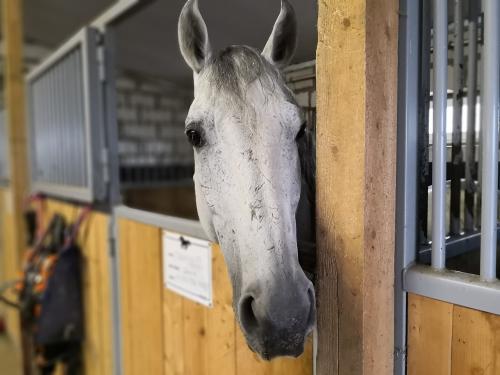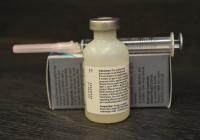Aging and the Equine Immune System

Across species, aging has significant effects on many of the body’s prominent biological systems. In particular, advancing age weakens the immune system and makes it slower to react to threats. Overall, horses show similar, but milder, age-related changes in immune function than those observed in humans.
Immune dysfunction due to age is known as immuno-senescence. It results in reduced immunity and increased inflammation. In elderly people, this contributes to chronic health conditions such as cancer, heart disease, and neurodegeneration. Interestingly, horses do not have many of the same risks for these age-related diseases. Although the reason for this is currently unknown, diet, genetics, physiology, exercise, and the absence of negative lifestyle habits are likely involved.
Research into the specific causes of age-related immune function decline in horses is difficult for several reasons. Among these is the arbitrary definition of “old” or “aged”, which may be 15 years of age in one study and 20 in another, for example, making comparisons across studies challenging. Many older horses also have subclinical diseases with no obvious clinical signs, such as metabolic abnormalities, that can complicate results. Additional confounding factors can include diet (including supplements), exercise, medication, and environment.
Inflammation
The process of inflammation is essential to the body’s ability to heal. White blood cells travel to the site in the body affected by infection or injury. Chronic inflammation occurs when those inflammatory cells overstay their welcome. Chronic inflammatory stimulation related to aging is termed inflamm-aging.
This low-level systemic inflammation is characterized by increased cytokine production. Cytokines are chemical messengers that point immune cells to the site of infection or injury. Research has shown that aging and obesity can result in increased cytokine production, and consequently increased inflammation. In horses, inflamm-aging contributes to conditions such as degenerative joint disease and reactive airway disease.
Factors such as nutrition and age-related muscle wasting may be associated with inflamm-aging in horses, but more research is needed as the overall causes are largely unknown.
Infectious Diseases
Although it is widely assumed that geriatric horses as a group are more broadly susceptible to infectious disease, that is actually not the case. It is true, however, that certain pathogens, such as West Nile virus (WNV) and equine herpes virus 1 (EHV-1), tend to cause more serious problems for older horses. Older horses that are infected with WNV tend to exhibit more severe disease than younger adults. Previously unexposed older horses in particular have a higher case fatality rate. Aged horses are also more susceptible to developing neurological signs (i.e. equine herpes virus myeloencephalopathy or EHM) due to EHV-1 infection (Zarski et al., 2021). In fact, with recent EHV-1 outbreaks, EHM cases have occurred in older horses at home barns that became infected by younger, healthy horses returning from shows.
Vaccines
Since older horses likely experience less travel and fewer interactions with horses outside of their home barn, there is a perception of reduced disease risk. Owners may also assume that older horses that have had years of vaccinations have lasting immunity. As a result, many older horses are not up-to-date on core vaccinations. One study reported that with every year in increased age, older horses are 40% less likely to receive a regular tetanus vaccination (McGowan et al., 2010). Research has shown that, although aged horses have some pre-existing immune responses, they are generally insufficient to counter challenge by infectious agents in the absence of continued regular vaccination.

It is important to note that older horses are still susceptible to vaccine-preventable diseases, even if they never leave home. Horses coming and going from competitions, insect vectors, and even visitors that transport infectious agents on shoes and equipment can transmit infectious diseases. Vaccination in itself is important, but it is also worth noting that older horses may react differently to vaccines than in their younger years.
Immunosenescence in people is characterized by reduced antibody response to vaccinations. This is also true in horses, but appears to be milder than what is observed in people. A reduced response to influenza vaccination has been reported in older humans and horses. Interestingly, despite this altered immune response, a higher number of naturally-occurring influenza cases in older horses have not been reported. In contrast, the response to a rabies vaccine administered to naïve horses did not differ between young and aged horses. More research is needed to better understand unique responses of older horses to vaccinations.
With this in mind, it is important to work with your veterinarian to determine the best vaccination protocol for your older horse(s). Vaccination strategies should be based on general health, body condition score, and presence of endocrine diseases like equine metabolic syndrome (EMS) and pituitary pars intermedia dysfunction (PPID).
